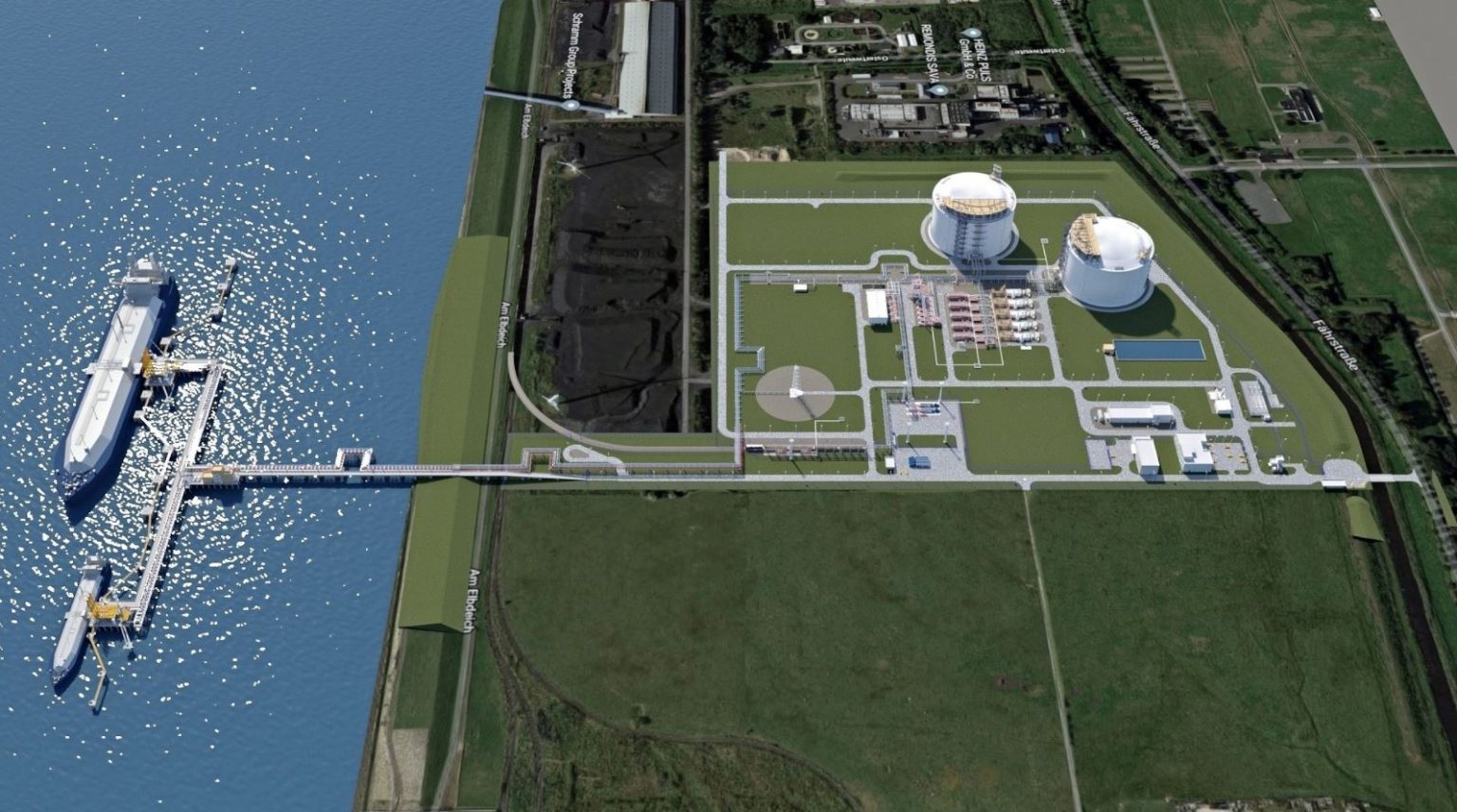LNG giant Shell aims to book capacity at the planned Brunsbuettel LNG import terminal in Germany, as part of a new deal revealed on Wednesday.
Shell and German LNG Terminal, the developer of the facility, signed a memorandum of understanding on the import of LNG through the terminal.
According to a joint statement, the duo agreed that Shell would make a long-term booking of a “substantial part” of the Brunsbuettel terminal’s capacity.
“Both parties are currently working towards a binding agreement on the scope and duration of their partnership, and hope to complete it as soon as possible,” the statement said.
Dutch gas grid operator Gasunie recently joined forces with the German government and RWE to build the Brunsbuettel LNG import terminal as the country looks to reduce reliance on Russian gas.
Gasunie will have a 40 percent operating stake in the facility with an annual capacity of 8 billion cbm per year.
RWE, which plans an ammonia facility next to this terminal, will have 10 percent in the facility and the government will hold 50 percent.
Moreover, the terminal will consist of two 165,000-cbm storage tanks and a jetty with two berths for LNG carriers up to QMax size and smaller LNG ships.
It will also have facilities for loading onto tanker trucks, rail tank cars and LNG bunkering ships for distribution.
“Noticeable increase in interest”
“The signed MoU with Shell, as well as the noticeable increase in interest from the market,
demonstrates the importance of the import terminal in Brunsbuettel,” Michael
Kleemiß, managing director of German LNG Terminal, said.
“We are looking forward to working with Shell as another partner in the coming years and will do everything in our power to drive planning and implementation forward rapidly,” he said.
Fabian Ziegler, managing director of Shell in Germany, welcomed the new deal with German LNG Terminal, saying “it is a key step” in contributing to security of supply in Germany in the near term as well in more widely in Europe.
“LNG is the most flexible form of gas supply, which can adapt quickly to shifting trade patterns and our diverse and flexible global supply portfolio enables us to deliver and import LNG efficiently where it is needed the most,” he said.

